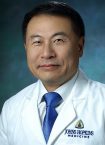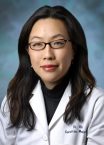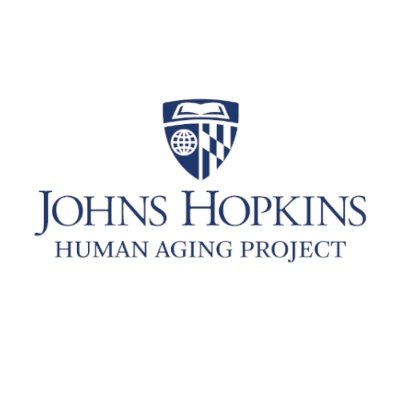The Johns Hopkins Human Aging Project (HAP) works to make research and program development funding available to faculty members through the HAP Scholars Program. HAP Scholars are selected on a competitive basis and are in general mid-career faculty members working in engineering/bioengineering, basic biology or clinical translational research related to aging. Special consideration is given to those individuals whose work also focuses on health disparities and ways to overcome these disparities. Philanthropic funding from donors participating in the Center for Innovative Medicine (CIM) has been instrumental in the development of the program. Additional funding has come from the Schools of Engineering and Nursing. The inaugural class of seven HAP Scholars was named in 2021, and many of these individuals have gone on to develop highly successful research and clinical programs.
2022 Human Aging Project Scholars
Sean X. Leng, MD, PhD, is the 2022 Salisbury Family CIM/HAP Scholar
 Dr. Leng is a geriatrician and immunobiologist, and Professor of Geriatric Medicine, Molecular Microbiology and Immunology the Schools of Medicine and Public Health. He has been in the forefront of discovery related to aging-related immune remodeling and how it influences influenza and COVID-19 infections, and how it impacts immune system vaccination response in older adults. He has previously established a longitudinal study of the effectiveness of influenza vaccine in adults over age 75, as well as a new COVID-19 vaccination study. He recently secured a large NIH center grant to study age-related changes in immune mechanisms that impact protection against influenza in older adults. This and other funding recently allowed Dr. Leng to establish the Johns Hopkins Center on Aging and Immune Remodeling (JH CAIR). Dr. Leng also leads Hopkins’ effort to promote the development of geriatric medicine in China, and serves as president of the Milstein Medical Asian American Partnership Foundation, which focuses on the the development of senior healthcare and aging research in China and greater Asia.
Dr. Leng is a geriatrician and immunobiologist, and Professor of Geriatric Medicine, Molecular Microbiology and Immunology the Schools of Medicine and Public Health. He has been in the forefront of discovery related to aging-related immune remodeling and how it influences influenza and COVID-19 infections, and how it impacts immune system vaccination response in older adults. He has previously established a longitudinal study of the effectiveness of influenza vaccine in adults over age 75, as well as a new COVID-19 vaccination study. He recently secured a large NIH center grant to study age-related changes in immune mechanisms that impact protection against influenza in older adults. This and other funding recently allowed Dr. Leng to establish the Johns Hopkins Center on Aging and Immune Remodeling (JH CAIR). Dr. Leng also leads Hopkins’ effort to promote the development of geriatric medicine in China, and serves as president of the Milstein Medical Asian American Partnership Foundation, which focuses on the the development of senior healthcare and aging research in China and greater Asia.
Esther Oh, MD, is the 2022 Sarah Miller Coulson CIM/HAP Scholar
 Dr. Oh is an associate professor in the Division of Geriatric Medicine and Gerontology with joint appointments in the Departments of Psychiatry and Behavioral Sciences and Pathology at the Johns Hopkins University School of Medicine. She is currently the co-director of the Johns Hopkins Memory and Alzheimer’s Treatment Center. Dr. Oh’s research, clinical work and educational activities seek to foster targeted and personalized treatment, care and cure for patients with memory disorders with a focus on interdisciplinary and team science approaches. This work includes the development of biomarkers for early detection of alzheimer's disease (AD) and to predict postoperative delirium, delirium and cognitive changes after surgery. Other areas of focus include long-term cognitive changes associated with COVID-19, sensory changes associated with AD and cognitive impairment in the context of multimorbidities and polypharmacy. As part of her engagement in the HAP Scholar Program, she will continue important work on a program to detect delirium risk and provide physicians with delirium interventions for vulnerable patients based on machine-learning algorithms.
Dr. Oh is an associate professor in the Division of Geriatric Medicine and Gerontology with joint appointments in the Departments of Psychiatry and Behavioral Sciences and Pathology at the Johns Hopkins University School of Medicine. She is currently the co-director of the Johns Hopkins Memory and Alzheimer’s Treatment Center. Dr. Oh’s research, clinical work and educational activities seek to foster targeted and personalized treatment, care and cure for patients with memory disorders with a focus on interdisciplinary and team science approaches. This work includes the development of biomarkers for early detection of alzheimer's disease (AD) and to predict postoperative delirium, delirium and cognitive changes after surgery. Other areas of focus include long-term cognitive changes associated with COVID-19, sensory changes associated with AD and cognitive impairment in the context of multimorbidities and polypharmacy. As part of her engagement in the HAP Scholar Program, she will continue important work on a program to detect delirium risk and provide physicians with delirium interventions for vulnerable patients based on machine-learning algorithms.
Hiromi Sesaki, PhD, is the 2022 Ethan and Karen Leder CIM/HAP Scholar
Dr. Sesaki is a professor in the Department of Cell Biology at Johns Hopkins University School of Medicine. His laboratory studies mitochrondria, the intracellular energy producers found in most cells. More specifically, he studies mitochondrial fusion and division and mitophagy, an intracellular recycling process thought to be dysregulated with increasing age. Overall, these dynamic mitochondrial processes integrate into major quality control mechanisms that removes mitochrondrial damage and ensures mitochondrial health and robust energy production. As part of the HAP Scholars Program, he will investigate how aging influences the mitochondrial quality control mechanism and work closely with other HAP investigators to translate his work into clinical uses related to aging and energy expenditure.
